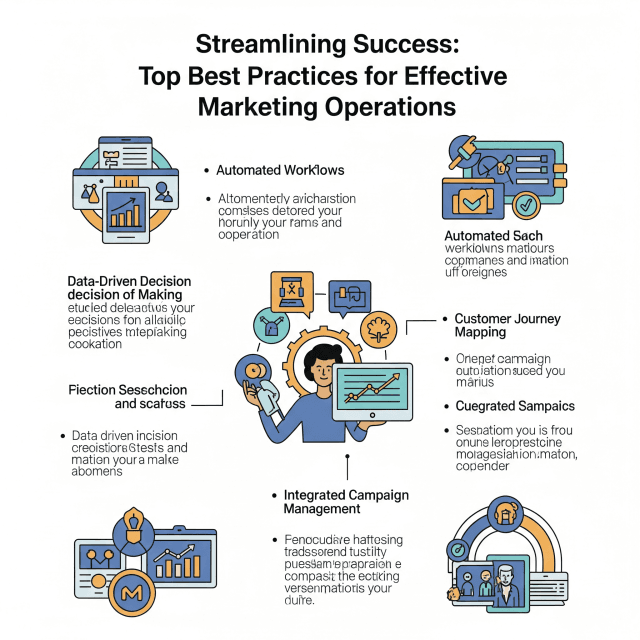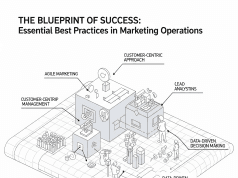In the fast-paced world of digital marketing, streamlining operations is crucial to ensuring success. With rapidly changing consumer preferences and an ever-evolving landscape of marketing channels, organizations need efficient processes to stay competitive. Here, we explore the best practices for effective marketing operations that can help streamline efforts and enhance overall performance.
1. Define Clear Objectives and KPIs
Before diving into any marketing initiative, it’s essential to outline clear objectives and key performance indicators (KPIs). These should align with your overall business goals. By understanding what success looks like—be it lead generation, brand awareness, or customer retention—teams can focus their efforts on activities that drive measurable results.
Actionable Steps:
- Collaborate with stakeholders to establish goals.
- Regularly review and adjust KPIs based on performance data.
2. Implement Marketing Technology Solutions
Investing in the right marketing technology can significantly improve efficiency. Tools like Customer Relationship Management (CRM) systems, marketing automation platforms, and analytics tools streamline workflows and enhance insights. By integrating these technologies, marketing teams can better manage campaigns, track user engagement, and execute personalized marketing strategies.
Actionable Steps:
- Assess current technology and identify gaps.
- Choose tools that integrate seamlessly for a unified marketing ecosystem.
3. Foster Cross-Department Collaboration
Marketing does not operate in a vacuum; it requires collaboration across departments such as sales, customer service, and product development. By fostering open communication, teams can share insights, align strategies, and work towards common objectives.
Actionable Steps:
- Schedule regular cross-department meetings.
- Create shared platforms for communication and project management.
4. Develop a Content Strategy
Content marketing remains a cornerstone of successful marketing operations. A cohesive content strategy not only boosts SEO but also engages potential customers at various stages of the buyer’s journey. Identify key topics, formats, and distribution channels that resonate with your target audience.
Actionable Steps:
- Conduct audience research to identify pain points and preferences.
- Create an editorial calendar to schedule and manage content production.
5. Utilize Data-Driven Decision Making
Analytics should guide marketing decisions. By leveraging data analytics, teams can derive actionable insights that inform strategies. Regularly monitor campaign performance and audience engagement to fine-tune tactics and maximize ROI.
Actionable Steps:
- Use dashboards to visualize key metrics.
- Encourage a culture of testing and learning within the team.
6. Embrace Agile Marketing Practices
Agile marketing allows teams to respond quickly to changes in the market. Implementing an agile framework facilitates rapid experimentation, feedback loops, and iterative improvements. This approach fosters innovation while minimizing risk.
Actionable Steps:
- Create cross-functional teams for tackling specific projects.
- Set up short, iterative cycles to test and adapt marketing initiatives.
7. Optimize Processes and Workflows
Streamlining marketing operations requires constant evaluation of processes and workflows. Identify bottlenecks and inefficiencies that slow down project timelines. Document standard operating procedures (SOPs) and automate repetitive tasks to free up time for strategic work.
Actionable Steps:
- Conduct regular process audits.
- Invest in workflow management tools to enhance transparency and accountability.
8. Invest in Training and Development
Continuous learning is vital in the ever-evolving field of marketing. Investing in employee training ensures that teams are equipped with the latest skills and knowledge. This not only boosts morale but also enhances overall team performance.
Actionable Steps:
- Offer workshops, webinars, or online courses.
- Encourage team members to share insights and knowledge within the group.
Conclusion
Effective marketing operations are integral to achieving business success in today’s competitive landscape. By implementing these best practices, organizations can streamline their processes, enhance collaboration, and drive better results. In a world where adaptability and efficiency are paramount, investing in these strategies will create a strong foundation for sustained growth and success.









